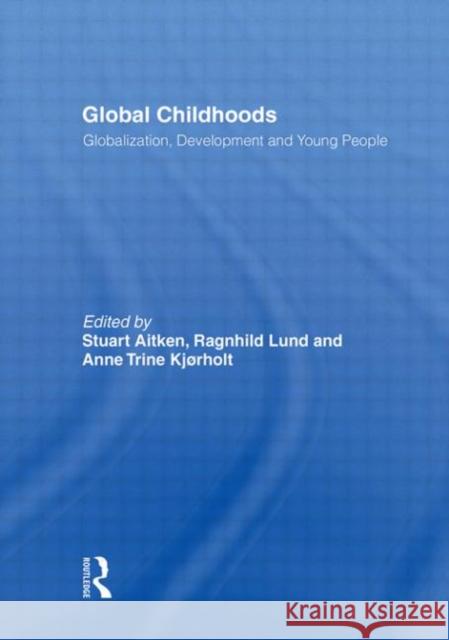Global Childhoods: Globalization, Development and Young People » książka
Global Childhoods: Globalization, Development and Young People
ISBN-13: 9780415411455 / Angielski / Twarda / 2008 / 198 str.
Global Childhoods: Globalization, Development and Young People
ISBN-13: 9780415411455 / Angielski / Twarda / 2008 / 198 str.
(netto: 696,83 VAT: 5%)
Najniższa cena z 30 dni: 654,86
ok. 16-18 dni roboczych.
Darmowa dostawa!
This astute book initiates a broad discussion from a variety of different disciplines about how we place children nationally, globally and within development discourses. Unlike other books of its kind, it does not seek to dwell solely on the abiding complexities of local comparisons. Rather, it elaborates larger concerns about the changing nature of childhood, young people's experiences, their citizenship and the embodiment of their political identities as they are embedded in the processes of national development and globalization. In particular, this book concentrates on three main issues: nation building and developing children, child participation and activism in the context of development, and globalization and children's live in the context of what has been called "the end of development." These are relatively broad research perspectives that find focus in what the authors term "reproducing and developing children" as a key issue of national and global concern. They further argue that understanding children and reproduction is key to understanding globalization.
This astute book initiates a broad discussion from a variety of different disciplines about how we place children nationally, globally and within development discourses. Unlike other books of its kind, it does not seek to dwell solely on the abiding complexities of local comparisons. Rather, it elaborates larger concerns about the changing nature of childhood, young people’s experiences, their citizenship and the embodiment of their political identities as they are embedded in the processes of national development and globalization. In particular, this book concentrates on three main issues: nation building and developing children, child participation and activism in the context of development, and globalization and children’s live in the context of what has been called "the end of development." These are relatively broad research perspectives that find focus in what the authors term "reproducing and developing children" as a key issue of national and global concern. They further argue that understanding children and reproduction is key to understanding globalization.











